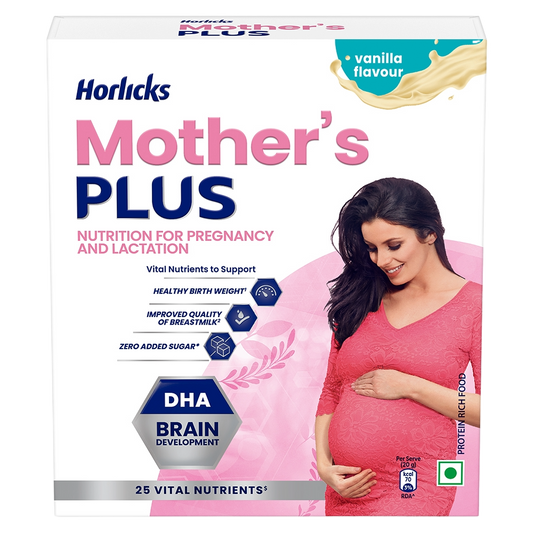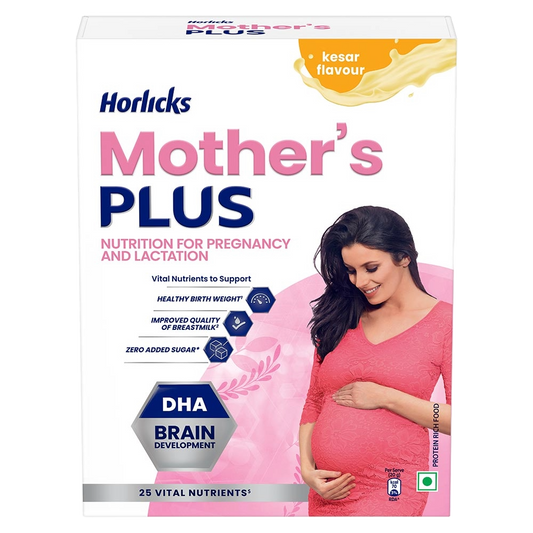Congratulations on finding out that you are pregnant! In about nine months from now, a little bundle of joy will arrive and completely change your life – forever. It will fill your life with joy and hope, love, and laughter.
Pregnancy is one of the most rewarding experiences of your life. It is a miraculous time – you are creating a life inside you. For the next 40 weeks, it is just you and your baby. For first-time mothers with no idea about what to do, it can be quite overwhelming at first. But it is important to slow down and enjoy the journey as it will be gone in a blink!
Pregnancy And Nutrition
Proper nutrition and a balanced diet are important aspects of leading a healthy life. But they become all the more important during pregnancy. Your food choices will have an impact on your baby's growth and development, as well as ensuring that each of you gain the appropriate amount of weight. They are also critical for a safe and complication-free pregnancy and delivery.
Our nutritional requirements can be broken down and classified into the following:
Macronutrients: The nutrients that your body needs in larger quantities, in order to be able to function properly are termed macronutrients.
There are three kinds of macronutrients required by our bodies and they are:
When trying to lose weight, you are advised to reduce your carbs intake, however pregnancy isn’t the time to shun carbohydrates. They provide the energy that your body needs to nurture your baby and an average woman needs about 100 – 130 grams of carbohydrates daily. It is important. however, to choose the right forms of carbohydrates. You must avoid simple carbs in the form of refined flour (white bread, pasta, pizza, etc.). Instead, choose complex carbs such as whole grains, Indian flatbreads such as chapatis and parathas, rice, oatmeal porridge, beans, and legumes, etc. Spread out the intake of carbs into smaller portions, eaten frequently throughout the day.
Pregnant women need about 46 grams of protein per day during the first trimester, about 55.5 grams during the second trimester and about 68 grams of protein per day in the third trimester.1 Protein is crucial for the healthy growth and development of your baby’s muscle and organ tissues. Common, protein-rich foods include eggs, meat, fish and poultry, milk, and other dairy products such as cottage cheese and cheese. Plant-based sources of protein include soy, buckwheat, pulses such as masoor daal, chana daal, moong, and matki, etc., legumes such as chickpeas, kidney beans, nuts such as almonds and walnuts, etc.
Fats are not the villains they are painted to be. In fact, your body needs fats to store energy, absorb vitamins that are fat-soluble and produce certain hormones. They are also a source of essential fatty acids such as omega 3. For good health, adult women need to consume at least 20 grams of fats (from food sources). It is important to be mindful of the kind of fats that you consume. Avoid trans-fat found in highly processed foods such as junk food and cut down on saturated fats found in full cream dairy products, cheese, fatty meat etc. Include unsaturated aka the good fats in the form of desi ghee, fatty fish, dried fruits, nuts, nut butter etc.
Micronutrients: The nutrients that our bodies require in very small amounts but are essential for the proper functioning of our bodies are known as micronutrients. Micronutrients play a critical role in our health and are responsible for various functions such as the production of hormones and enzymes in the body. The following micronutrients should be a part of your pregnancy diet:
Adequate intake of choline during pregnancy ensures normal growth of the baby and proper development of the baby’s brain. Pregnant women must derive at least 450 mg [J1] [AD2] [H3] of choline from their diet, per day. The dietary sources of choline include dairy products, eggs, fish, meat, and poultry. Plant based sources of choline include soybeans, kidney beans, broccoli, mushrooms, nuts, seeds, and whole grains.
Docosahexaenoic Acid or DHA is a type of omega 3 fatty acid that is vital for the growth and development of the baby’s brain, eyes, and nervous system. The recommended daily intake of DHA is between 100-300mg per day1. The important dietary sources of DHA include eggs, fish, chia seeds, walnuts, flax seeds, soybean oil, kidney beans etc.
Pregnant women must derive around 40 mg of iron1 from their food per day. It is required for the optimum supply of oxygen to the fetus. It is also important for red blood cell production. Meat and poultry, beans, peas, and lentils, bajra and buckwheat, dates, garden cress seeds (halim), dark green leafy vegetables such as spinach, fenugreek, mint and fresh coriander, almonds, cashews, jaggery, broccoli and cauliflower are some of the most common sources of iron.
During pregnancy, you need around 570mcg of folate per day. It ensures that the baby does not develop any major birth defects and helps in forming the neural tube. Common sources of folate in your diet can be vegetables such as cluster beans (gavarfali), spinach, beetroot, peas, broccoli, ladies’ finger and dried fruits and nuts such as almond, cashews and walnuts.
900 mcg of Vitamin A is required each day during pregnancy. It is vital for the development of the eyes, skin, and immunity of the baby. It can be easily found in several foods such as milk, carrots, pumpkins, mangoes, tomatoes, dark green leafy vegetables such as spinach and fenugreek.
Pregnant women need around 1000 mg of calcium per day. It is supremely crucial for the healthy development of the bones and teeth of the baby. Milk and other dairy products such as curd and paneer, ragi, cauliflower, spinach, chawli, coriander etc. are great sources of calcium.
Additionally, pregnant women also need 2.3mg of vitamin B6, 2.45mcg of vitamin B12, 80 grams of vitamin C, 600 grams of Vitamin D, per day. They must also ensure that they get 250mcg of iodine, 14.5 mg of zinc, and 40 mcg of selenium, per day, for a healthy pregnancy and complication-free delivery.
Need For Nutritional Supplementation
A great way to complement your diet during this time would be by way of including a balanced daily diet with a nutritional drink such as Horlicks Mother’s Plus in your diet. It has been scientifically designed keeping in mind the nutritional requirements of pregnant and lactating women. It provides you with 25 nutrients including 21 essential vitamins and minerals in addition to carbohydrates, protein, fat and DHA* that are important to provide optimal nutrition for the mother’s health and baby’s growth.
It is a delicious source of choline and DHA, which are important for the normal development of the brain and nervous system of the fetus. It also provides high-quality protein, Vitamins B1, B2, B6, B12, A, Selenium, and iodine, which are known to help improve the quality of breast milk. And the best part? It is available in delicious Vanilla and Kesar variants!
Horlicks Mother's Plus is the number 1 gynecologist recommended nutritional drink for pregnant women. ^
Compliment your healthy diet with appropriate (and doctor-approved) supplements and exercise routine and your pregnancy will become a blissful experience to cherish for life! There isn’t a greater joy than holding your little bundle of joy in your arms and witnessing them grow and thrive into a great human before you!









